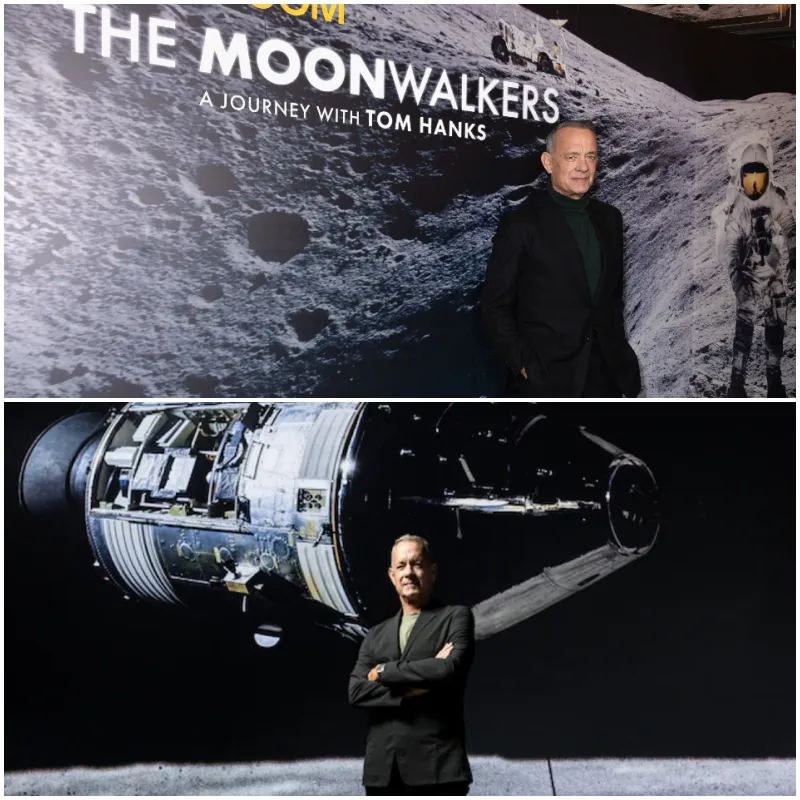
Tom Hanks, the beloved Oscar-winning actor, has made a bold prediction that the first woman and first non-white man from the US will set foot on the moon within the next “three to four years.” This prediction came as Hanks promoted his latest narrated experience, The Moonwalkers: A Journey with Tom Hanks, which showcases past missions to the moon at London’s Lightroom.
In an interview with the PA news agency, Hanks stated, “Sometime within the next, let’s be charitable, three to four years, the first woman is going to step foot on the surface of the moon, as well as the first non-white American male. That is as equal and evolutionary place for humankind as Neil Armstrong was in 1969.” Hanks emphasized that this monumental event will mark a new chapter in space exploration and human achievement.

The Moonwalkers exhibition is a collaborative project between Hanks and Christopher Riley, a BAFTA-nominated writer and director. The experience features NASA footage, as well as stunning visuals from Andy Saunders’ photographic book Apollo Remastered. According to Riley, Hanks has long been an advocate for space exploration, using his platform to highlight the importance of human spaceflight. Riley believes that the project aims to show that space exploration brings out the best in humanity, especially in times when the world feels “pretty dark.”
Hanks also reflected on his personal experiences with NASA, recalling a visit to the Lunar Receiving Laboratory where he saw moon rocks collected by Neil Armstrong and David Scott. These rocks suggested the possible presence of water on the moon, a discovery that Hanks described as a “game changer for all of humankind.”

Hanks, who previously portrayed astronaut Captain Jim Lovell in Apollo 13, has been a passionate supporter of space exploration. He serves on the National Space Society board and has been honored by the Space Foundation for his contributions to space advocacy. His latest project further cements his commitment to inspiring others to explore the endless frontier of space.




